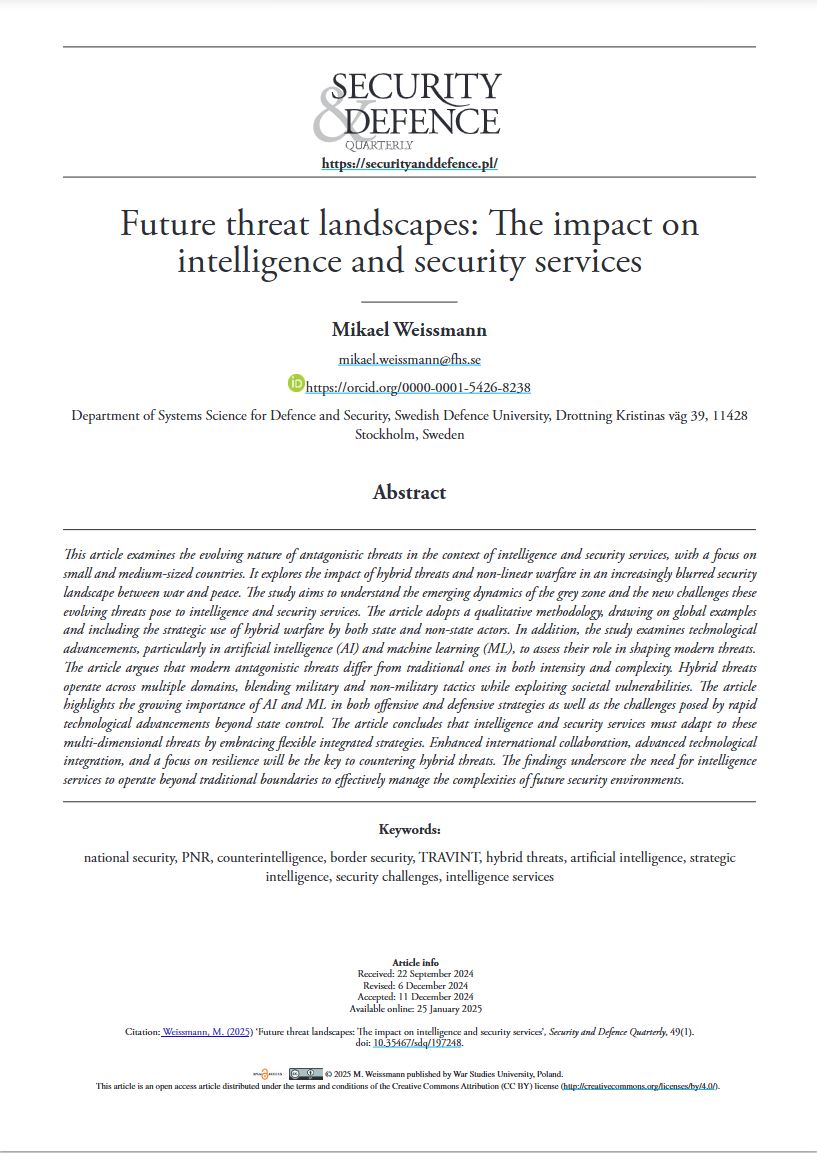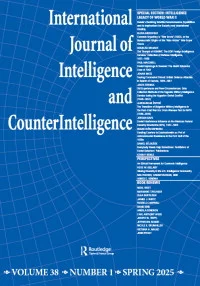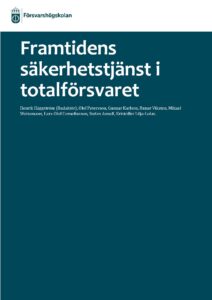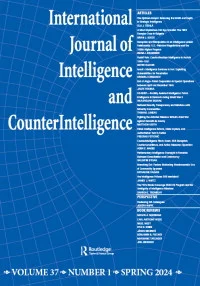
My latest article, “Future Threat Landscapes: The Impact on Intelligence and Security Services”, is now published in Security & Defence Quarterly!
This article examines the evolving nature of antagonistic threats in the context of intelligence and security services, with a focus on small and medium-sized countries. In an era where the line between war and peace is increasingly blurred, intelligence and security services face a rapidly evolving threat environment.
This article examines:
- The rise of hybrid threats and non-linear warfare
- The strategic role of AI and machine learning in modern security
- How intelligence services must adapt to meet multi-domain challenges
As technology and geopolitics shift, resilience, adaptability, and international cooperation will be key to navigating these uncertainties.
Read the full article here: https://doi.org/10.35467/sdq/197248
#SecurityStudies #HybridThreats #Intelligence #AI #Defence #CyberSecurity #NationalSecurity



